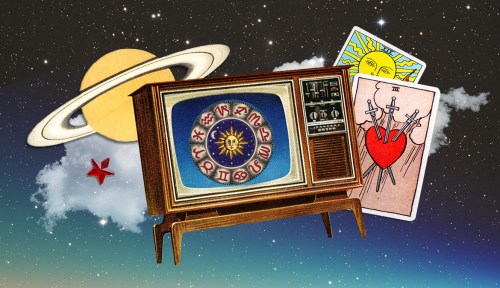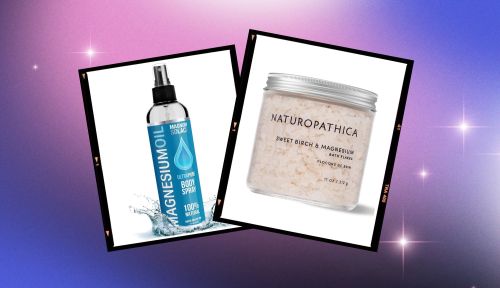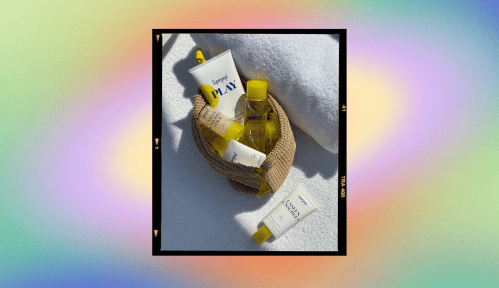Our editors independently select these products. Making a purchase through our links may earn Well+Good a commission
The goal of Domestic Violence Awareness Month (DVAM), which we honor throughout October, is to amplify conversations about domestic violence and share resources about how to recognize and escape it. Exchanges about domestic violence commonly focus on physical abuse. While that should absolutely remain the case, it’s also imperative to recognize toxic, abusive relationship signs that are mental and emotional, especially given that these often precede physical altercations in relationships.
As a writer and speaker who works tirelessly to address and end domestic violence, I am often asked what toxic, abusive relationship signs suggest it’s time to call it quits versus work on the dynamic. While most people have a clear understanding and definition of physical abuse, mental and emotional abuse—especially in the midst of a pandemic that presents its own challenges, like loneliness, existential worry, and financial strife—can be less clear. Are feelings of dissatisfaction in a relationship or arguments that never seem to end just a reflection of stress, strain, and overall hopelessness or signs of a toxic, abusive relationship?
It can be tough, complicated question to answer, especially when we’re taught that no relationship is perfect and having the willingness to work through conflict is necessary. Furthermore, both of those teachings are true—but only to a degree. It’s important to be cautious of relationships that are toxic, relationships in which we don’t feel seen, heard, or feel safe. Below, learn how to spot signs of that type of situation.
Signs you might be in a toxic, abusive relationship
As Lillian Glass, PhD, communications and psychology expert and author of Toxic People, has previously said, a toxic relationship is “any relationship [between people who] don’t support each other, where there’s conflict and one seeks to undermine the other, where there’s competition, where there’s disrespect and a lack of cohesiveness.” So, key toxic, abusive relationship signs include ongoing unhappiness and dissatisfaction. They are relationships that are emotionally and physically draining and damaging, and there isn’t an overall feeling of safety or calm in them. If you are in a relationship where you feel consistently angry, anxious, unhappy, or even ambivalent, the relationship may be toxic or abusive.
If you are in a relationship where you consistently feel angry, anxious, unhappy, or even ambivalent, the relationship may be toxic or abusive.
Abusers—regardless of whether they know that they are being abusive or even intend to be—are often manipulative. Shame is a regular tool of manipulation, and in a toxic, abusive relationship, the abuser might turn to criticism or humiliation as tools for manipulation and gaining control. Over time, this kind of manipulation can affect a person’s self-esteem and sense of self-worth, making it difficult to leave the relationship.
Another sign of mental and emotional abuse—one I’ve experienced firsthand and outline in my book, Without Bruises: A Journey to Hope, Help, and Healing—is when an abuser isolates their partner from family and friends. At first, this isolation can feel romantic—a lover wanting to spend all their time with you. But if it turns into them questioning why you want to spend time with family and friends, and even seeming possessive or jealous when you are not with them, that’s a red flag. Isolation reflects a lack of support, which sets you up for more kinds of mental, emotional, financial, and physical abuse.
Gaslighting, when someone tries to debase your sense of reality, is another form of mental and emotional abuse that can make leaving a toxic relationship difficult. When you are being gaslighted, you have a compromised ability to trust yourself—your feelings, your ideas about reality, and your intuition.
There are many other forms of emotional abuse that show up in toxic relationships and make it hard for those being abused to leave. An abusive partner may have a Dr. Jekyll and Mr. Hide type of personality wherein abusive behavior is followed by acts of kindness and what many perceive as love. This kind of irrational up and down allows an abuser to blame the person being abused for manipulative and violent behavior, which frequently makes the abused person believe they are getting what they deserve when they experience abuse. An abuser may also disguise controlling behavior as care, and then you one day realize you no longer have a life or identity of your own.
Essentially, when your entire life revolves around someone who is manipulative and abusive, it’s very difficult to end that relationship or even recognize that the relationship is abusive and toxic in the first place.
What to do if you think you’re in a toxic, abusive relationship
Since we are taught to fight for romantic relationships, and we often have compassion for our partners, it’s easier than many realize to dismiss toxic, abusive relationship signs. But when we stay in toxic relationships and make excuses for the toxicity we experience, we make space for mental, emotional, and even physical abuse.
If you don’t feel like you know whether your relationship is toxic or abusive, it is imperative that you talk to someone—preferably a professional who can guide you through the thought process around your relationship and help you determine whether it can be mended or whether it’s time to go. If you are not able to locate a therapist to help you in your decision-making process, please call or chat with the National Domestic Violence Hotline.
Navigating domestic violence and physical and emotional abuse can be frightening and overwhelming—especially during this pandemic, when the entire world feels like an inescapable dumpster fire. But if you’re having thoughts or feelings about being in a toxic or abusive relationship, consider that a strong sign you might be. Choose yourself, find support, know that there is a full, beautiful life to be lived outside the relationship that is causing you pain. I am living proof.
If you are experiencing or have experienced domestic violence and are in need of support, please call the National Domestic Violence Hotline at 1-800-799-7233 or TTY 1-800-787-3224.

Jillian “JJ” Simmons is a self-love coach, speaker, author, and creator of the movement Respect My Crown. Respect My Crown encourages women to deepen in spirituality, sisterhood, accountability, and service. Jillian is also the founder of JJ’s I’m Me Foundation, which inspires teen girls to be the best version of themselves. Sign up for her weekly self-love enhancing email at JJontheMic.com
Oh hi! You look like someone who loves free workouts, discounts for cult-fave wellness brands, and exclusive Well+Good content. Sign up for Well+, our online community of wellness insiders, and unlock your rewards instantly.
Sign Up for Our Daily Newsletter
Get all the latest in wellness, trends, food, fitness, beauty, and more delivered right to your inbox.
Got it, you've been added to our email list.











